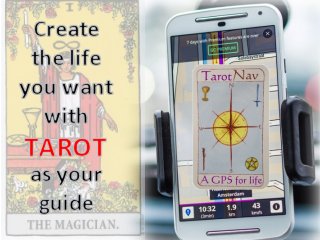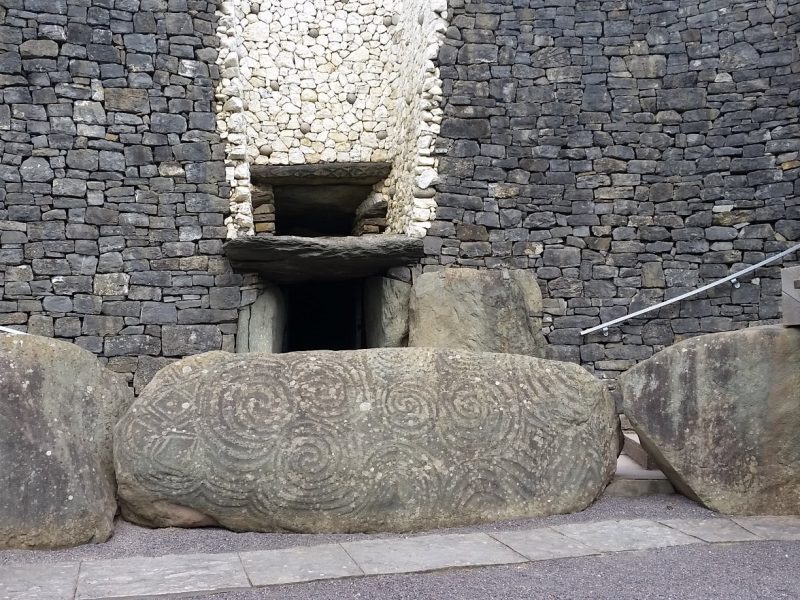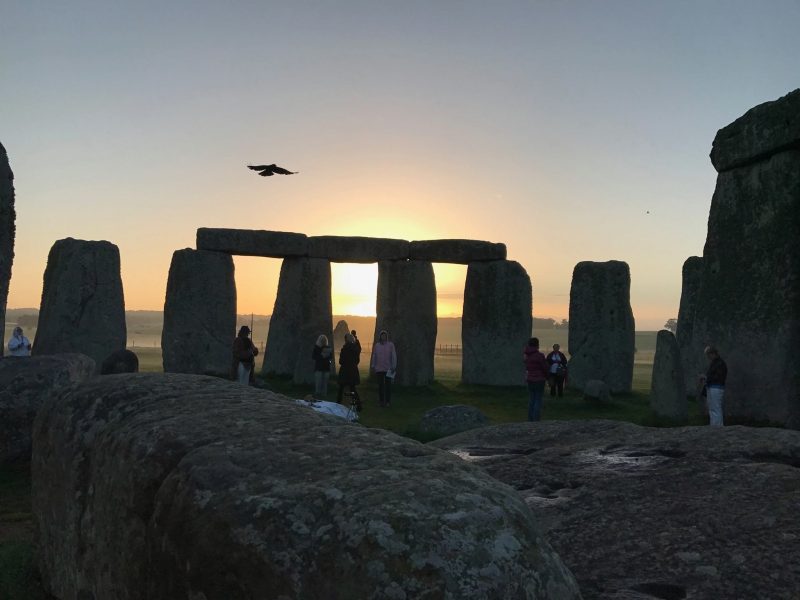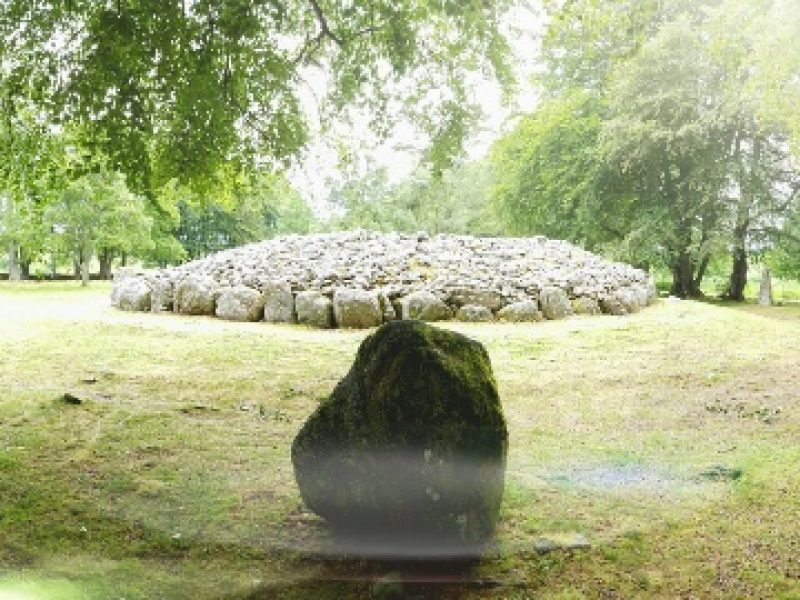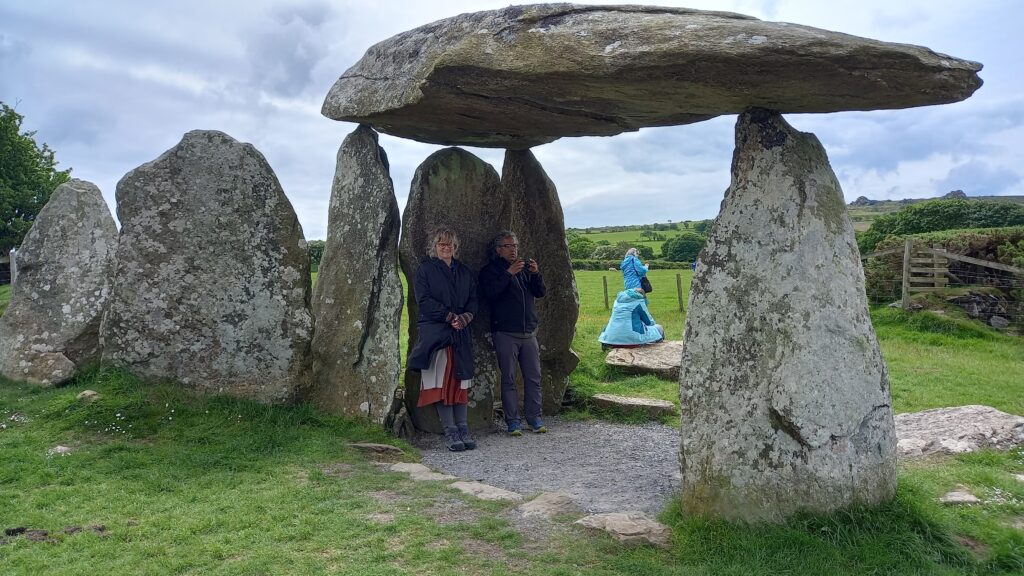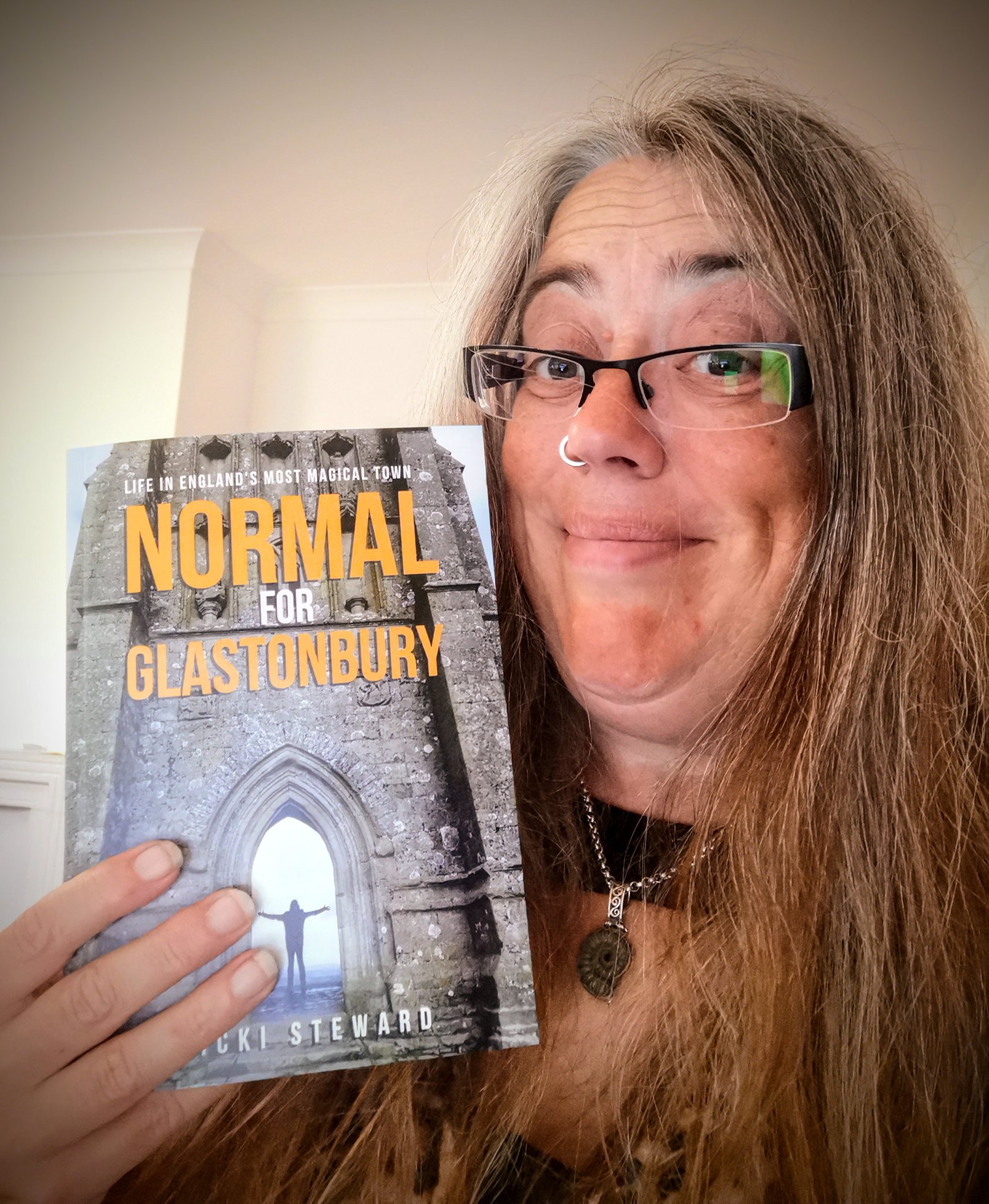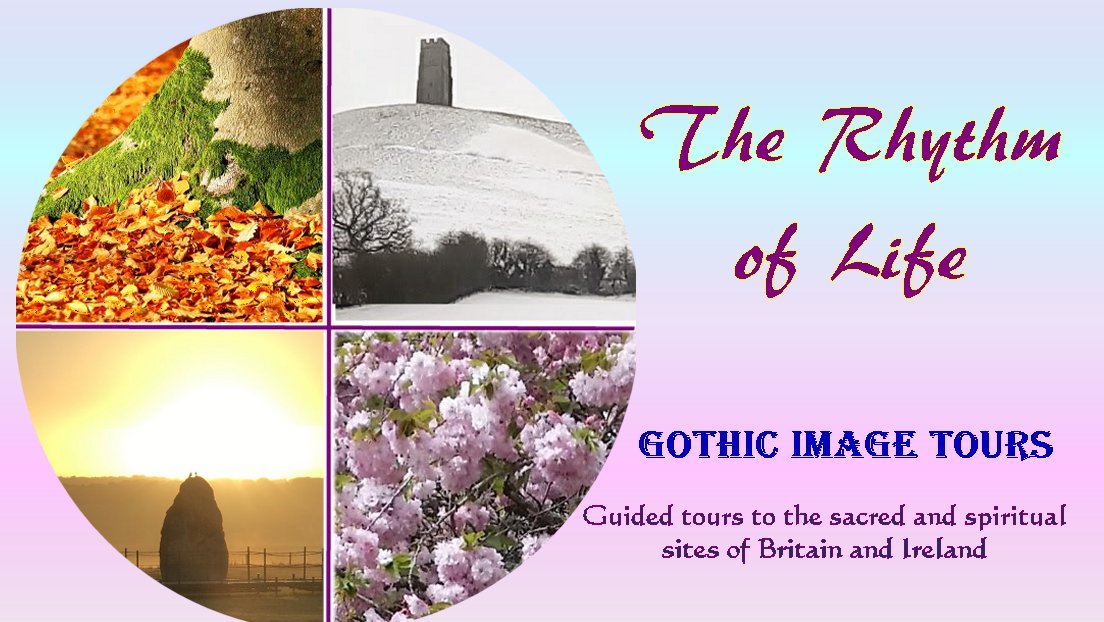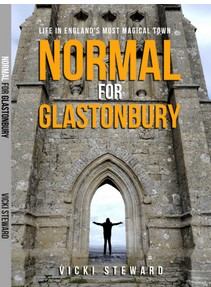 Last year I discovered a website that had me hooked within minutes. As someone who has come to call Glastonbury a second home, how could I resist a website called Normal for Glastonbury? It’s the brainchild of Vicki Steward, who, in 2020, published a collection of her blogs in Normal for Glastonbury – the book. It goes without saying that I highly recommend this book to anyone who dreams of visiting the Isle of Avalon or to people who have fond memories of exploring ‘England’s most magical and oddest Town’.
Last year I discovered a website that had me hooked within minutes. As someone who has come to call Glastonbury a second home, how could I resist a website called Normal for Glastonbury? It’s the brainchild of Vicki Steward, who, in 2020, published a collection of her blogs in Normal for Glastonbury – the book. It goes without saying that I highly recommend this book to anyone who dreams of visiting the Isle of Avalon or to people who have fond memories of exploring ‘England’s most magical and oddest Town’.
As soon as I started to read the book I thought of what Ethel Barrymore once said “You grow up the day you have your first real laugh at yourself.” Vicki’s sense of humour and wry observations of people and events paint a picture of a town and community mature enough to have a laugh at themselves. The popularity of the website and book among locals is a testament to that.
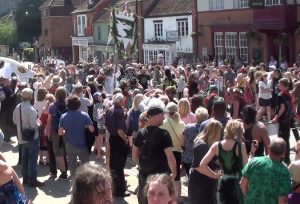 In answer to people who tell her she’s a celebrity around town, she says “Glastonbury is the celebrity. I’m a mouthpiece”. And how does she see Glastonbury in these Covid times? “Everything that is celebrated in this town has been suppressed. We’re waiting longingly for a time when we can, once again, be immersed in a human soup!”
In answer to people who tell her she’s a celebrity around town, she says “Glastonbury is the celebrity. I’m a mouthpiece”. And how does she see Glastonbury in these Covid times? “Everything that is celebrated in this town has been suppressed. We’re waiting longingly for a time when we can, once again, be immersed in a human soup!”
Vicki is also a photographer. I contacted her in January 2021 seeking permission to use some of her winter photos in a video I was producing for Gothic Image Tours. Since 2013 I’ve been helping director Jamie George organise and promote his tours to sacred and spiritual sites in the UK and Ireland. His home town of Glastonbury is a highlight of the Merlin’s Britain tour.
So, when and why did Vicki settle in Glastonbury?
Vicki: It’s all about the people. I come from a place where people are much more conventional and Glastonbury had this glamour of being different. I first came here in 1988 when I was 20. I turned up with a mish mash of ideas about ley lines, seeing fairies, hippies – you get the picture. It took another five years before I moved here. So the attraction is a combination of community and the landscape, which I enjoy in many ways – from walking the streets and through the fields to cycling on the Somerset levels.
Linda: Tell me a bit about your Normal for Glastonbury blog and book. Beneath the humour and wry comments, is there an underlying philosophy?
Vicki: I never set out to become a blogger or be seen as any sort of representative of the town. It really happened by accident and I didn’t think my humorous view would be so popular. I honestly just expected a few people from Glastonbury to find it funny. Of course, there are people who get upset because they want everything about Glastonbury to be magical and mystical. That’s absolutely fine – all they have to do is ignore my blog!
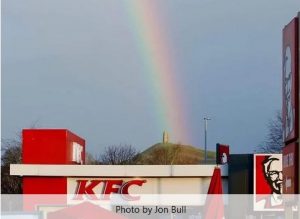
Some people are upset by my Crap Views of the Tor . Let me explain… I have a series of photos of the Tor that would never make it onto a postcard. The series started years ago when I took a photo of the Tor with an industrial site in the foreground. But it’s become a big thing now, with people taking and posting their own ‘crap views of the Tor’.
Back to the question of an underlying philosophy…much of what’s important about Glastonbury isn’t exclusive to this place. I think people need to take that feeling to wherever they are. I’m talking about the sense of freedom to be themselves, openness to change, appreciation for diversity. I hope that comes across in the blogs.
Linda: What about people living in the outskirts of Glastonbury?
Vicki: It’s a small population – about 10,000. I don’t think you’d find a street that is entirely born and bred local or entirely hippie. We’re pretty inter-mixed and that’s something I enjoy about living here. I say hello to the butcher, the postman, the Glastonbury Outreach minister (who’s fond of black and purple and turns up at pagan events). The motto and by-line of the Glaston Centre says it all – unity through diversity – working together to nourish the spiritual heart of Glastonbury. It’s about celebrating the 70 odd faith and spiritual practices in the town and doing as much as we can to create unity and encourage communication. So I really enjoy the fact that I have friends of all ages, from different backgrounds, and with different interests.
 Linda: Shopping in Glastonbury is definitely anything but normal – which can be a good thing, depending on what you’re looking for.
Linda: Shopping in Glastonbury is definitely anything but normal – which can be a good thing, depending on what you’re looking for.
Vicki: I like to describe the High Street and its arcades as a spiritual supermarket. I hear people complain that you can’t buy anything useful in Glastonbury. This is of course nonsense. What could be more functional than a mirror ball Ganesha? Who needs underwear when you can simply don a very long cloak?
As someone said to me once ‘I don’t actually want a cauldron, but it’s nice to know I could just pop into the High St and buy one if I did’.
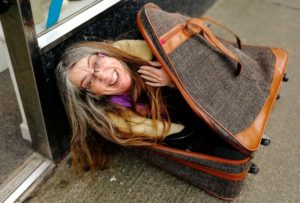 BTW, there’s a story behind that photo of me…one day I went downtown to a Charity shop, saw a large suitcase and thought it would be fun to zip myself up in it outside the shop so I could jump out and scare the life out of the traffic warden walking down the street!
BTW, there’s a story behind that photo of me…one day I went downtown to a Charity shop, saw a large suitcase and thought it would be fun to zip myself up in it outside the shop so I could jump out and scare the life out of the traffic warden walking down the street!
Linda: For a town its size, Glastonbury has an amazing number of live music venues.
Vicki: Yes, it’s a hub of creativity. I used to organise music festivals, I’ve lived in households with musicians and worked in the Assembly Rooms which is a great music venue. Glastonbury is not just about hippies and new-agers, it’s much more complex than that. It attracts all sorts of creative people – artists, craftspeople, musicians and they’re not all airy-fairy, they’re not all painting and singing about goddesses and whatever.
Linda: Leaving the Glastonbury Festival to one side for the moment, what are the main events that bring visitors to the town?
Vicki: Many visitors return again and again. They develop a relationship with the place and eventually become part of the community. You don’t have to live in Glastonbury to be an important part of the community.

May Day is a big one in the yearly calendar and it’s becoming more and more popular. You have the Beltane celebrations, the Glastonbury Dragon Drummers and the May Pole. And at the opposite season there’s Samhain and Halloween. Frost Fayre in November is popular. Basically it’s a Christmas market with lots of stalls, stages for live music and the town is inundated with visitors. The pubs serve mulled cider and have their own events. It’s a really lovely, inclusive time. People come from all over the place and many say it’s their favourite event.
The Glastonbury Guy Fawkes Carnival is also in November – an interesting event which causes quite a lot of controversy. It’s a procession of illuminated floats on the back of tractors that goes right through the town and lasts about two hours. Watch this video and be amazed!
Linda: Then there are the people who come every year for special interest gatherings, for example, the Occult Conference, Megalithomania and the Goddess Conference. What do these gatherings add to the town?

Vicki: It’s fun in summer. Just about every weekend (in normal non-Covid years) a different special interest group invades the town – the Fairy Ball, for example. So you might go downtown to buy a loaf of bread and encounter two hundred people walking around in wings. It all adds to the colour and difference of the town.

I think the Goddess Conference has contributed a lot to the changes we’ve seen in the town but it’s had its share of controversy over the years. There have been times when some goddesses apply their assertiveness training in inappropriate ways. But, looking at it from a different angle, think of the women who come to this gathering to escape boring lives. It’s good that they get to feel special and empowered in that one week.
Linda: You wrote a very thoughtful piece about social issues in the context of a public meeting about anti-social behaviour in the town in 2018. I was here then and have to say that walking up the High Street past the Co-Op was a bit unsettling. In your blog you talk a lot about homelessness and cost of living, so what was your take on that anti-social behaviour meeting?
Vicki: I think people have come to have this idealised vision of the town as if it exists outside of society and, of course, it doesn’t. We have the same social problems here as anywhere else in England. I think some of the older, more conservative members of the community believe that if they could wave a magic wand and get rid of all the alternative people, Glastonbury would return to the way it was in the 1950s. They hold us responsible for all the social ills. Interestingly, one of the things that attracted me to Glastonbury was the absence of a hard drug problem. I came from somewhere very normal where there was a very obvious hard drug problem. In Glastonbury it was much more self-regulating. People were looking out for each other and it felt really safe. You rarely saw police and there were very few incidents.

There were the ‘benchers’, the homeless community who often have a drink problem, but they were part of the community. Social and homelessness problems have become worse all over England, so now, in Glastonbury there are more people with problems than can be integrated. Once upon a time, everyone attracted to the town, irrespective of their circumstances, shared in the sense of Glastonbury being a place of magic and a place where change was possibile. They had their own creative interests – yes, they might be a street drunk, but they might also be an exceptional musician or artist. I think many people have been forced into poverty and homelessness who don’t share those interests and values. They came to Glastonbury because they saw it as an ‘easy place’ to be. And some of them end up exploiting other people. So now there are too many people to really look out for each other and the social scales are out of balance. Of course, exploitation happens at other levels in the community, not just at the bottom of the social ladder. I sometimes think that the more people who come to Glastonbury to be light-workers and spiritual healers, the more you get this visible, uncomfortable, messy scene in the High Street. You could see it as some sort of cosmic balancing act.
With all the social issues and the pandemic, I think Glastonbury could easily be bought out by people from the city, wanting to move to regional areas. It could be gentrified, it could become a victim of its own success. I do wonder if the anti-social behaviour serves to put people off buying houses here. I’ve wondered if that’s another side of the cosmic balancing mechanism.

Recently on my Facebook page I was whinging about being bored, and someone responded by saying “I’d rather be bored in Glastonbury than anywhere else!” “I get that,” I thought, “but it’s a real place with real people and real social problems”. Also I think some people forget that it’s a market town in Somerset with its own industrial history. People living here have memories of their families working in the sheep skin factories and the local farming community and there’s lots of stuff I appreciate around that as well.
 I’m a little sad about hearing fewer Somerset accents on the street. In a ‘normal’ year, I love hearing lots of different languages as I walk down the High Street, as well as people with Australian or American accents. I love and really appreciate that, but where are the Somerset accents? It’s as if many Somerset people believe there’s nothing for them in Glastonbury and some locals think they’ve been pushed out. The carnival is really the one event on the calendar that locals feel is theirs.
I’m a little sad about hearing fewer Somerset accents on the street. In a ‘normal’ year, I love hearing lots of different languages as I walk down the High Street, as well as people with Australian or American accents. I love and really appreciate that, but where are the Somerset accents? It’s as if many Somerset people believe there’s nothing for them in Glastonbury and some locals think they’ve been pushed out. The carnival is really the one event on the calendar that locals feel is theirs.
Some people believe the ‘alternative’ communities should have a float in the carnival. Personally, I think we should just keep out of it and not try to make everything ours. Because we have taken over and I understand why people are upset about that. But I do think they’re unrealistic in thinking that we’re responsible for all the changes that have happened in the town. Modernisation would have happened. We have this fantastic High Street where people can earn a living from their craft and art. Fortunately, there are many locals who ‘get’ that, so there isn’t a great sense of separation. I have lots of friends who are locals who enjoy Glastonbury the way it is.
 Linda: Let’s talk about the Glastonbury Festival, which is seven miles away on a farm in Pilton. You work there – except when there’s a pandemic, of course.
Linda: Let’s talk about the Glastonbury Festival, which is seven miles away on a farm in Pilton. You work there – except when there’s a pandemic, of course.
Vicki: The festival and the town have had a huge influence on each other. I personally love it. Quite a lot of people don’t, quite a lot of people moan about it.
Linda: There’s so much more to the festival than the headline acts, isn’t there.

Vicki: I don’t go for the headline acts, so rarely go to the main stages. I prefer the green fields where there are crafts and tipis with info on permaculture, off-grid living and all sorts of stuff. You’ll also find theatre, circus and comedy acts. I work in the Latino Big Top which is all Latin dance.The festival is so much more than the headline acts – and definitely not just a rock concert.
Linda: What sort of work do you and others do at the festival?

Vicki: Just about any skill can be applied in the festival context. Festivals need people with construction skills, set designers, accountants, security people, people who can dig holes. Whatever you go there to do, you end up having to do things you didn’t think you were capable of.
There’s a huge festival scene in England, but a lot of events wouldn’t survive if there was no Glastonbury Festival. It’s the one that brings in the people and the money. Lighting and sound companies, tipi hire companies make the main bulk of their money from Glastonbury and then they’re able to go off and do all the other events. It will be interesting to see how many survive through the pandemic. So the economic impact of the festival is massive. It’s also the event where, over 50 years of staging, they’ve learned how to do things. When I was organising smaller festivals for 10,000 people, I would look at how Glastonbury did traffic management, for example, and used that as model for how I could organise it. The logistics of handling so many people is fascinating.
A final word about England’s famous summer weather and its impact on festival goers. It can be challenging and hugely amusing as this ‘stuck in the mud’ video shows.
Finally, here’s where you can find more information about Normal For Glastonbury, including many more pictures.
You can read about England’s Oddest Town at www.normalforglastonbury.uk
You can now get Normal For Glastonbury ‘The Book’
Join the community for exclusive posts and offers and more at www.members.normalforglastonbury.uk
Facebook facebook.com/NormalForGlastonbury
Normal For Glastonbury on YouTube
Instagram @NormalForGlastonbury
Over to you!
Have you been to Glastonbury? Is The Isle of Avalon on your bucket list of places to go? Did you find yourself laughing as you read parts of this blog? Were you outraged? Vicki and I would love to hear from you.


